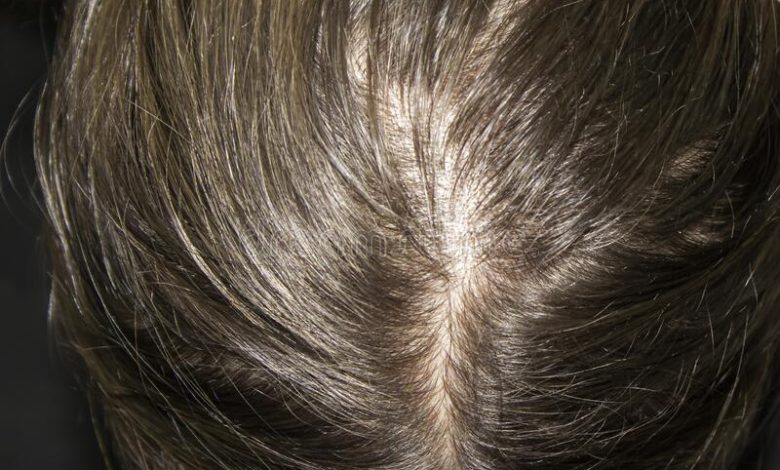Causes for Hair Thinning and Most Effective Hair Treatments for Thin Hair

If you are trying to find the perfect solution for thin hair, then you are not alone. Thick and shiny hair bangs not only depicts beauty but also a healthy mind and body. As we know that the condition of your hair locks is a direct representation of your health. Hair loss and thinning can be caused by a variety of health factors, including a poor diet, chronic sickness, and hormonal swings. As a result, just changing your hair products is rarely effective in combating hair thinning and loss. Most probably you have tried several treatments and products to deal with hair thinning. I myself from Dubai, and have tried hundreds of for the ideal solution. Some of them work some not. You must improve your workout program, diet, and hair care regimen in order to achieve healthier and thicker hair. Let’s have a look at the causes of hair thinning and what you can do to thicken your hair.
What Causes Thinning of Hair?
Excessive hair loss can be caused by a variety of factors, including chronic illness, vitamin deficiencies, and even specific haircuts. The following are some of the most common causes of hair thinning:
● Hereditary Traits
The most prevalent cause of hair loss in the world is hereditary hair loss. This form of hair loss, also known as androgenic alopecia, male pattern baldness, and female pattern baldness, affects both men and women. Hereditary hair loss is usually progressive and begins with aging. It is characterized by a receding hairline and bald spots in men, and a generalized thinning of hair in women, particularly along the top of the head.
● Medical Conditions
Certain medical conditions or medications can lead to hair thinning in both men and women. This can be temporary or permanent depending on each individual. Scalp infections such as ringworm are a common cause of hair loss. Alopecia areata, an autoimmune ailment, and trichotillomania, a hair-pulling habit, are two medical conditions that can cause hair loss.
● Deficiency of Nutrients
Vitamin B12, vitamin D3, folic acid, certain amino acids, and critical minerals deficiency can cause hair loss or thinning of hair. After a few months, using vitamins to correct such deficiencies usually helps to reverse hair loss and stimulate regrowth.
● Hormonal Changes
Hormones in your body control the health of your hair. Excessive hair loss and thinning are common symptoms of hormonal imbalances. Hair loss in women can be caused by hormonal changes caused by pregnancy, childbirth, and menopause. Thyroid disorders have a negative impact on hair health as well.
● Medications and Supplements
Many drugs and supplements cause hair thinning as an adverse effect. Chemotherapy medications, as well as several pharmaceuticals, used to treat heart problems, arthritis, and gout, cause severe hair thinning and hair loss. Hair thinning can also be caused by some birth control drugs. Hair loss caused by drugs is usually very temporary. When a patient quits using the medicine, it is common to see regrowth.
● Too Much Stress
Hair thinning is said to occur gradually over several months after a serious physical or mental upset. It’s possible that the traumatic event was physical, emotional, or both. People frequently notice losing hair weeks after surgery, an accident, a divorce, or the death of a loved one.
● Hair Styling & Hair Treatments
Ponytails and cornrows, for example, are examples of hairstyles that can cause traction alopecia, a kind of hair loss. Hair loss can also be caused by hot oil treatments and chemical treatments such as bleaching. Even though such hair loss is usually transitory, scarring can make it permanent.
It’s reasonable to question if hair thinning or hair loss can be reversed now that you’ve learned about the numerous variables that might cause hair thinning or hair loss. Let’s find out the most effective ways to treat hair loss and thinning.
Tips for Thick and Nourished Hair
For those who are dealing with thinning hair, it can be a very upsetting experience. Fortunately, there is some positive news to report. In many cases, hair loss can be reversed if diagnosed early enough. A thorough medical examination is recommended to establish the core reason for your hair loss. The results of your blood tests will tell if you have any nutritional deficiencies or hormonal imbalances that could be causing your hair loss. For professional advice on how to reverse hair loss and grow thicker hair, talk to your doctor or a trichologist.
1. Have a Healthy Diet
Micronutrients such as vitamins and minerals are important in determining the quality of your hair. Iron, vitamin D, amino acids, folate, vitamin B12, and selenium deficiencies can have a significant impact on your hair health, resulting in brittle hair and hair loss. Eating a well-balanced diet that is rich in these micronutrients is the first step toward thicker hair. Hemp seeds, flax seeds, pumpkin seeds, almonds, green leafy vegetables, fresh fruits, and a range of beans and legumes should all be included in your diet.
2. Try Hair Products for Volume
The purpose of volumizing hair products is to make your hair appear fuller and thicker. If your confidence is being harmed by thinning hair, you should consider investing in a high-quality volumizing shampoo and conditioner. Volumizing shampoos are designed to give your hair a bounce and the appearance of fullness. They don’t make your hair thicker, but they do make it look fuller and bouncier.
3. Induct Vitamin Supplements
Our food isn’t always adequate to meet all of our nutritional needs, especially if you’ve been diagnosed with a vitamin or mineral deficiency. In this situation, see your doctor about appropriate supplements. Hair loss has been linked to vitamin D3 insufficiency, which is common around the world. If your levels are normal, consult your doctor, and if you have a deficit, begin taking a supplement under their supervision.
4. Regular Oil Massage
The stimulation of hair follicles and the promotion of hair growth can be achieved by massaging your scalp with natural oils. Oils make your hair smoother and simpler to handle, in addition to promoting hair development. Oils can also be used as conditioners and sealants. Make oil massages a frequent component of your hair care routine to see long-term improvements in scalp and hair health. Massage your scalp with coconut oil, olive oil, almond oil, jojoba oil, and grapeseed oil.
5. Change Hair Care Products
The significance of selecting the appropriate hair products cannot be overstated! Different hair kinds require different products, so look for products that are specifically made for your hair type. While there are various excellent hair care products on the market, you can also go the natural route and develop your own DIY hair care products that are suited to your specific hair care needs.
6. Visit a Dermatologist
Excessive hair loss can be distressing and have a negative impact on your mental health. It could also be a symptom of a more serious medical problem. If you’ve been losing hair for several months and haven’t found a solution, it’s time to seek expert help. Make an appointment with a dermatologist. They’ll inspect your hair and scalp and offer advice on hair loss, breakage, alopecia, and trichotillomania, among other issues.
7. Add Essential Oils and Vitamins into your Hair Care Routine
Aromatherapy has long been a staple of the beauty industry. Many essential oils, such as lavender oil, peppermint oil, and rosemary oil, have been shown to effectively treat hair loss in people. To produce an anti-hair fall treatment, combine 4-5 drops of peppermint or lavender essential oil with two tablespoons of olive or coconut oil to make a fragrant massage oil. A few drops of your favorite essential oil can also be added to your shampoo or conditioner.
8. Adopt a Holistic Health Care Routine
Hair health is intertwined with other areas of your physical and emotional wellness. Changing your hair care products alone will not make your hair grow thicker. To improve and maintain the quality of your hair throughout time, you should take a comprehensive approach to hair health. To improve your entire physical and mental health, incorporate holistic health care techniques such as meditation, exercise, emotional healing, yoga, and others into your daily routine.
Final Thoughts
For many people, having thicker, healthier hair is a dream come true. Fortunately, thickening your hair is not difficult. Oil massages, volumizing shampoos, and conditioners, and a well-balanced diet rich in good fats, vitamins, and minerals are all that your hair requires on a regular basis. The key here is consistency; effects may take 3-4 months to appear. So, if you desire thicker, glossier, and healthier hair, stick to a regular hair care program.





